The Eastern Newfoundland Science and Technology Fair prepares students each year for a future in science. The hands-on approach has greater benefits than just good grades.
Abby Butler
Kicker
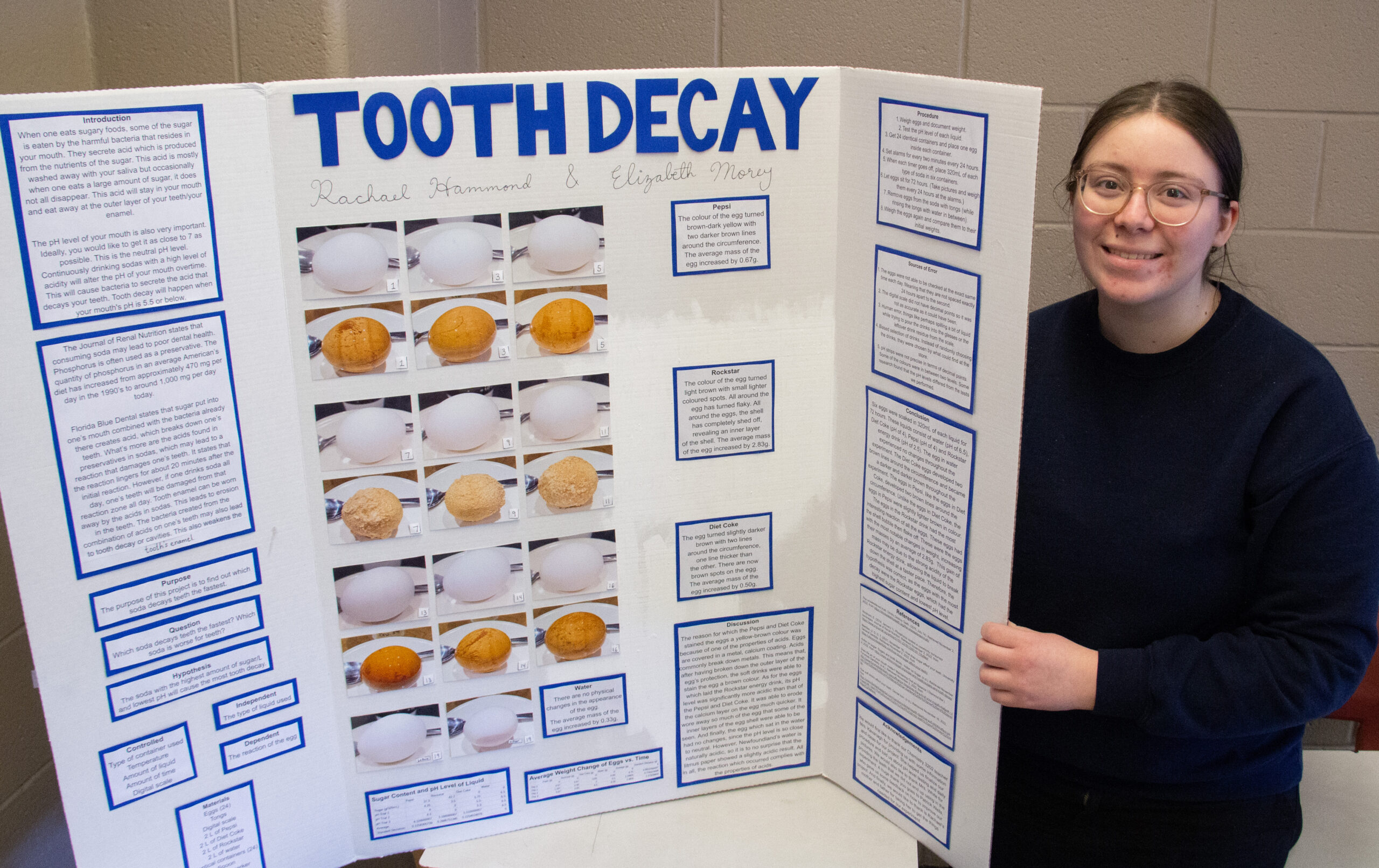
The Eastern Newfoundland Science and Technology Fair brought more than130 students together at the Marine Institute last weekend.
“We have so many bright children in our province that we don’t highlight enough,” said Heidi Kavanagh, co-chair of the Newfoundland and Labrador Science Fairs Council.
Months of preparation, planning and thoughtful work lead up to the grand exhibit. While it is a time-consuming project for students and teachers alike, the outcome is rewarding for all involved.
There are opportunities for students to go home with various awards including medals and scholarships, but deep learning through hands-on experience is just as gratifying.
Real life thinking
Rachael Hammond is a Grade 11 student, and is one of 34 students from Holy Trinity High that attended this year’s fair. She produced a project observing the effects of various beverages on teeth.
The twist? She tested on eggs.
“Teeth have a calcium layer outside of them and inside is the softer part, and eggs are similar to that,” said Hammond. “They have a shell made of partially calcium with the soft egg inside, so we used that to replace it.”
Hammond says there aren’t a lot of opportunities to be hands-on in the classroom, but she says there would be many advantages if there were.
“Right now, it’s kind of hard to take what I take notes on in class and think of it in real life. But with the science fair, I actually did,” said Hammond.
She was given honourable mention for her work, but going home with a physical prize was not the main priority. She says it’s about gaining experience through hands-on learning, and the valuable lessons that come with it.
Hammond said it’s about “how to take stuff that I learned and make it real.”
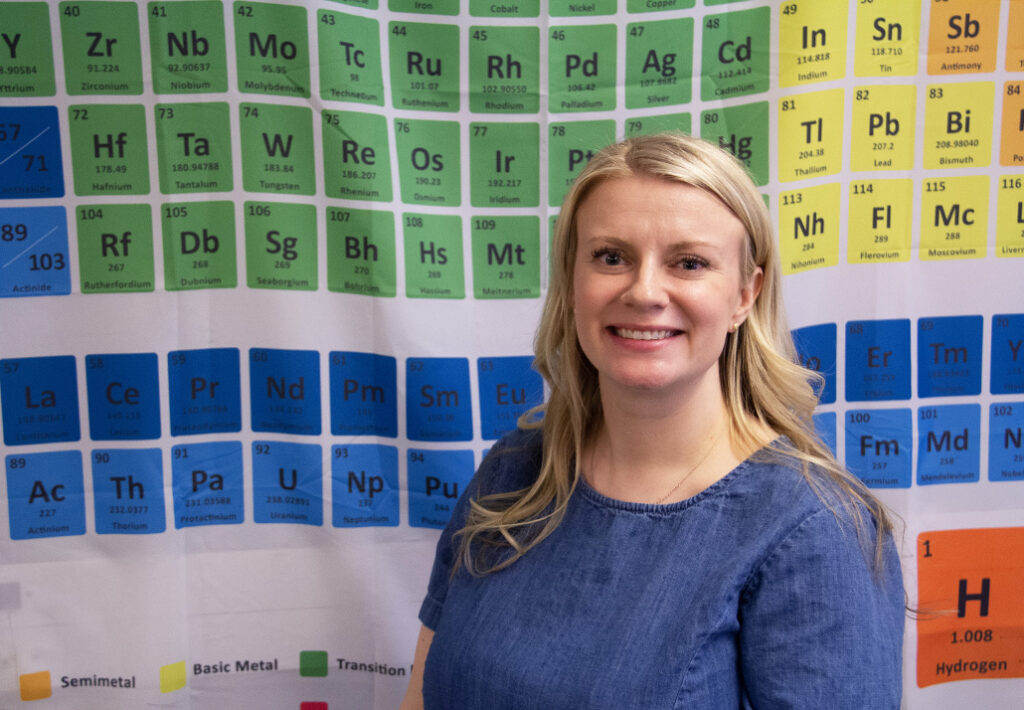
Heidi Kavanagh is the head of the science department at Holy Trinity High School in Torbay and co-chair of the Newfoundland and Labrador Science Fairs Council.
She has been teaching science for eight years and has taken part in the science fair for six.
Kavanagh says that there have always been labs in the curriculum, which provide students with the opportunity to work hands-on, but oftentimes the opportunities were missed.
Because of various factors like public exams, possible financial constraints on the school, and how comfortable a teacher is in the lab, people often skipped the labs or did them digitally.
“Digital labs are work, but they never give the true experience,” said Kavanagh.
It’s events like the science fair that truly involve students in deep learning, giving them exposure to authentic hands-on learning.
For Kavanagh, preparing for and attending the fair is an exciting time – not just for herself, but also for her students.
She views it as a passion project because students choose a topic they are passionate about and create unique and creative projects.
“They get to choose their topic, which is awesome because there is no choosing in the traditional curriculum, in the traditional classroom,” said Kavanagh.
With this, students get the immersive experience of hands-on science.
“Science is doing,” said Kavanagh. “It’s about understanding the world around them, so it’s really important to do those hands-on things with students.”
Beneficial changes
In 2018 the Department of Education began the process of changing the curriculum for science courses in the province.
One of the big changes resulted in the first unit of all the high school sciences being dedicated to integrated skills. With this change, there is an increased focus on hands-on learning, creating experiments and labs.
There are many labs that are now mandatory as part of the high school science curriculum.
Kavanagh says she feels fortunate for these changes, as they have great benefits for the students.

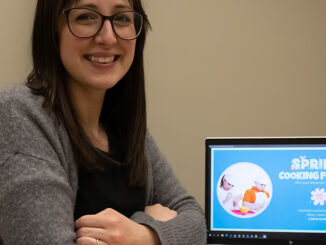
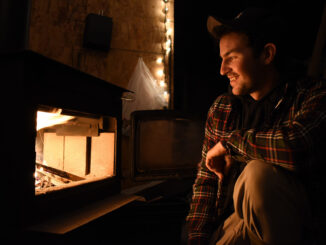
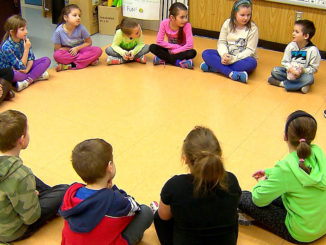
Be the first to comment